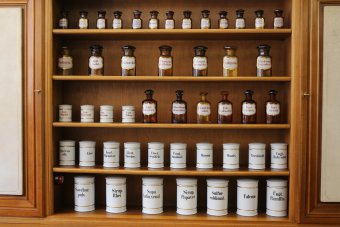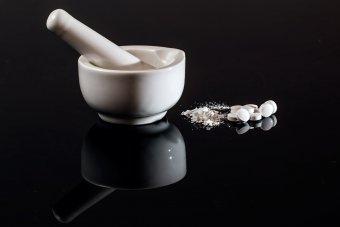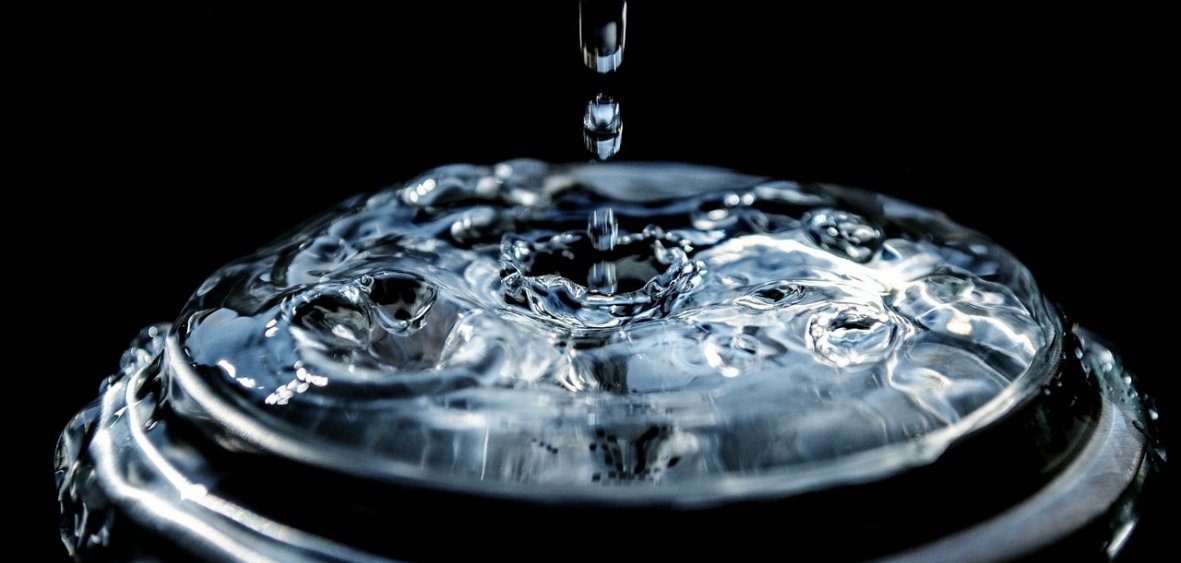Magnesium chloride is a compound, which has a very positive effect on the human body. Both magnesium and chlorine are macroelements involved in many life processes. Why is magnesium chloride so valuable?
Magnesium and its valuable properties
 Magnesium is present in all cells of our body. Without it, it would be impossible to function properly. It activates over 300 enzymes and affects almost every system, including the immune, nervous, bone and blood systems.
Magnesium is present in all cells of our body. Without it, it would be impossible to function properly. It activates over 300 enzymes and affects almost every system, including the immune, nervous, bone and blood systems.
Magnesium is not the best absorbed and we eat it in too small quantities. Most of us therefore suffer from a shortage of this element. With the help of magnesium chloride, a far more digestible compound that supports the treatment of infectious diseases and has a beneficial effect on the immune system.
Magnesium and its effects on the body
Magnesium is an activator for more than 300 enzymes, has a positive effect on muscles and nerves, participates in the transmission of nerve impulses, prevents muscle contractions, is helpful in maintaining good mental and physical condition, regulates blood pressure, has a beneficial effect on blood coagulation, prevents the accumulation of cholesterol in blood vessels, prevents cardiovascular diseases, reduces the risk of heart attack, strengthens the immune system, blocks the negative influence of poisonous metals, participates in the insulin production process, prevents osteoporosis, prevents the occurrence of migraine, relieves symptoms of premenstrual tension and also menstrual pains
Effects of chlorine on the body
Chlorine takes part in detoxification of the liver. In addition, together with sodium, it maintains the acid-base balance in the body. Contributes to the proper functioning of the heart. It is also essential for the production of hydrochloric acid in the stomach.
Taking magnesium chloride improves the condition of the body. People who benefit from the benefits of this relationship can see an increase in energy and a clear improvement in their mental and emotional condition.
Magnesium chloride is used, among other things, in the treatment of diseases:
The following are the most common types of gastrological diseases: - gastrological diseases,
of the skeletal system,
back pain,
colitis,
gall bladder diseases,
skin diseases (e.g. acne, eczema, rashes),
allergies,
Parkinson,
Prostate hypertrophy.
 Magnesium chloride delays the effects of aging and soothes itching in the case of haemorrhoids.
Magnesium chloride delays the effects of aging and soothes itching in the case of haemorrhoids.
According to Prof. Pierre Delbet of the Paris Academy of Medicine, the magnesium chloride compound is effective in the prevention of cancer as well as in inhibiting its development in early stages (cysts, polyps, myomas). It is worth mentioning that magnesium deficiency is considered to be the cause of cancer.
Properties of magnesium chloride
Magnesium chloride has a relaxing and stress relieving effect on the body. This compound has detoxifying properties, which also has a beneficial effect on the condition of the skin (reduces the number of eczemas and inflammations, helps in the treatment of acne and psoriasis).
Magnesium chloride affects the efficient functioning of muscles and nerves, relieves muscle pain and reduces cramps. Adequate magnesium chloride levels will ensure a quick recovery of injured muscles and joints, accelerate healing of wounds and irritations, reduce swelling and bruising.
This compound is invaluable in all rheumatic diseases, joint and back pains.
It lowers blood pressure, reduces the risk of atherosclerosis and diabetes.
Magnesium chloride increases the vitality of the whole body.
It is recommended to take about 360 - 410 mg of this compound. Increased doses can be used in case of vascular and cardiac problems, signs of calcification and aging and in conditions of increased stress. Excessive amounts of magnesium chloride can cause disorders of the digestive system.
How to prepare a Delbet solution
 On a precision electronic scale, measure 33.3 g of magnesium chloride and dissolve in 1 litre of boiled (cooled) water. Pour the liquid into a clean glass container and store it in the refrigerator. Drink 50 ml of the solution in the morning on an empty stomach for the first 3 days, then 100 ml each. In chronic diseases it is recommended to use 3x100 ml in the first week, 2x100 ml in the second week, and 1x100 ml in the following weeks.A natural symptom after taking the solution is stool dilution. The solution has a specific taste. In the case of chronic diseases (especially kidney and hypertension) and the use of medicines, we recommend that you consult your doctor.
On a precision electronic scale, measure 33.3 g of magnesium chloride and dissolve in 1 litre of boiled (cooled) water. Pour the liquid into a clean glass container and store it in the refrigerator. Drink 50 ml of the solution in the morning on an empty stomach for the first 3 days, then 100 ml each. In chronic diseases it is recommended to use 3x100 ml in the first week, 2x100 ml in the second week, and 1x100 ml in the following weeks.A natural symptom after taking the solution is stool dilution. The solution has a specific taste. In the case of chronic diseases (especially kidney and hypertension) and the use of medicines, we recommend that you consult your doctor.
Other uses of magnesium chloride
2 glasses of magnesium chloride can be added to the bath. Bathe in the solution for about half an hour without soap or detergent. Magnesium chloride can cause slight burning or pinching. Discomfort disappears quite quickly. At the end of the bath, the body should be rinsed with clean water.
A similar bath can be used for feet. Add 2 tablespoons of magnesium chloride to the bowl, soak your feet for about half an hour. Rinse with clean water. After bathing, the feet can be greased with butter or oil, as the skin may be slightly dry.
Prepare the oil by mixing 1 part of chloride with 2 parts of water (or hudrolat). Once the skin is used to it, we change the proportions to 1 part of chloride + 1 part of water. Dissolve chloride in slightly heated water and pour into an atomizer bottle.















